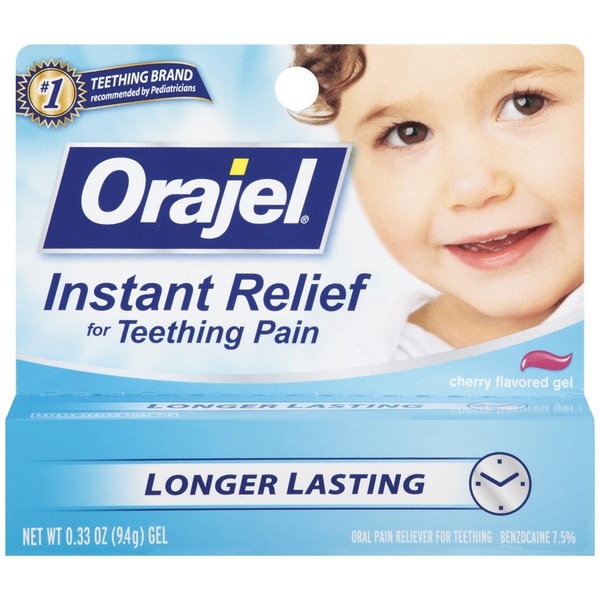之前FDA已經發佈過聲明
現在更是針對牙科產品提出警告
The US Food and Drug Administration (FDA) is warning consumers to immediately stop using benzocaine-containing over-the-counter drug products, including those used to treat teething pain, in infants and children under 2 years of age as they can pose a "serious risk."
The Drug Safety Communication issued today builds on prior warnings from the agency regarding the risk for methemoglobinemia associated with benzocaine-containing products. "This dangerous condition is the result of elevated levels of methemoglobin in the blood and it can lead to death. It causes the amount of oxygen carried through the blood to be greatly reduced," the agency said in a news release.
The agency has been monitoring the risk for methemoglobinemia and estimates that there have been more than 400 cases reported to the FDA or published in the literature since 1971. They acknowledge this is likely an underestimate.
Signs and symptoms of methemoglobinemia may appear within a few minutes to 2 hours after use, and can occur after a first-time use or after multiple exposures. Symptoms include pale, gray- or blue-colored skin, lips, and nail beds; shortness of breath; fatigue; headache; lightheadedness; and rapid heart rate. "If any of these symptoms occur after using benzocaine, the person should receive medical attention immediately," the agency said.
"Health care professionals should warn patients of the possibility of methemoglobinemia and advise them of the signs and symptoms when recommending or prescribing local anesthetic products," the agency said. Patients with heart disease, breathing problems such as asthma, bronchitis, or emphysema, and the elderly are at greater risk for complications related to methemoglobinemia.
The agency advises that healthcare professionals who use local anesthetics during medical procedures take steps to reduce methemoglobinemia risk. Such steps include "monitoring patients for signs and symptoms suggestive of methemoglobinemia; using co-oximetry when possible; and having resuscitation equipment and medications readily available, including methylene blue," the agency specified.
The agency is also asking companies to stop selling the products for treating teething pain in infants and children under the age of 2 years, and said it will take official action to remove them from stores.
"In addition to our letters to companies who make these products, we urge parents, caregivers and retailers who sell them to heed our warnings and not use over-the-counter products containing benzocaine for teething pain," FDA Commissioner Scott Gottlieb said in a statement.
Benzocaine is also used in products to treat sore throats, canker sores, and other oral irritations. It is sold as gels, sprays, ointments, and lozenges. Some of the more common brand names are Anbesol, Baby Orajel, Cepacol, Chloraseptic, Hurricaine, Orabase, Orajel, and Topex. Prescription local anesthetics include articaine, bupivacaine, chloroprocaine, lidocaine, mepivacaine, prilocaine, ropivacaine, and tetracaine.
"Given the accumulating evidence regarding benzocaine's association with methemoglobinemia, we are taking necessary action to work with industry to discontinue the distribution and sale of over-the-counter benzocaine oral health products intended for teething pain, and add warning information about methemoglobinemia and a contraindication against use for teething pain and against use in children under two years of age to the remaining oral health care drug products containing benzocaine," Janet Woodcock, MD, director of the FDA's Center for Drug Evaluation and Research, said in the news release. "As part of the action, the agency is also requiring that prescription local anesthetics add updated warnings about their risk of this condition."






 留言列表
留言列表
 線上藥物查詢
線上藥物查詢 